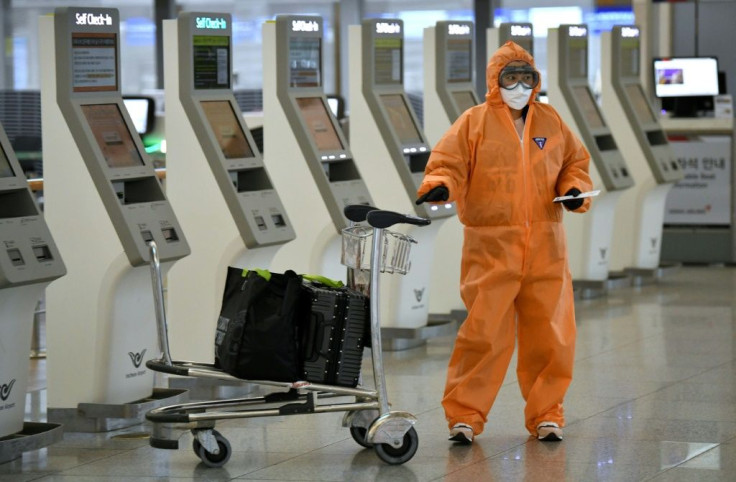Coronavirus Update: 51 Recovered Patients Test Positive Again, Virus 'Reactivated'
KEY POINTS
- South Korea reports an alarming case of 51 patients who relapsed into COVID-19 for no apparent reason
- Doctors say these people might either have been re-infected or the virus might have reactivated
- CDC said the immune response to COVID-19 isn't yet understood
It's still unclear if persons declared cured of COVID-19 can become sick again from this highly contagious disease. But the rising numbers of persons relapsing into the disease is raising concerns that either a re-infection or a reactivation of SARS-CoV-2 (severe acute respiratory syndrome coronavirus 2), the virus that causes COVID-19, might be the likely culprit.
In a particularly worrisome episode, South Korea reported 51 people from the city of Daegu in North Gyeongsang Province, and other parts of the province, had tested positive for SARS-CoV-2 after they recovered from the disease and were released from quarantine. Daegu and North Gyeongsang Province were the epicenters of the COVID-19 outbreak that began in February and continues to this day. Some 85% of the country's confirmed COVID-19 cases can be traced to Daegu alone.
The Korea Centers for Disease Control and Prevention's (KCDC) Director-General Jeong Eun-kyeong believes it's likely SARS-CoV-2 was reactivated, and didn't re-infect these same people. He came to this conclusion because these former patients again tested positive in a comparatively short time after exiting quarantine.
KCDC quickly sent an investigation team to Daegu to conduct an epidemiological investigation of these baffling cases. South Korea remains vigilant about COVID-19 making a comeback. It reported fewer than 50 new confirmed COVID-19 infections Monday, bringing its total infections to 10,284 since January. This total is the lowest daily increase since late February.
Triggering the re-infection versus reactivation debate is the widely held assumption that people infected with COVID-19 develop a protective antibody that protects them from renewed assaults by the coronavirus, which is the case with other coronaviruses. But this finding might not be true in the case of SARS-CoV-2, a new virus that only made its appearance in November 2019 in Wuhan, China.
Dr. Stephen Gluckman, an infectious diseases physician at Penn Medicine and the medical director of Penn Global Medicine, said it's likely that being infected by COVID-19 might result in immunity in most individuals.
“Coronaviruses aren’t new. They’ve been around for a long, long time and many species — not just humans — get them,” he said. “So we know a fair amount about coronaviruses in general. For the most part, the feeling is once you’ve had a specific coronavirus, you are immune. We don’t have enough data to say that with this coronavirus, but it is likely.”
Dr. Gluckman's observations echo that of the U.S. Centers of Disease Control and Prevention (CDC). CDC pointed out the immune response to COVID-19 isn't yet understood.
“Patients with MERS-CoV infection are unlikely to be re-infected shortly after they recover, but it is not yet known whether similar immune protection will be observed for patients with COVID-19.”

© Copyright IBTimes 2024. All rights reserved.





















